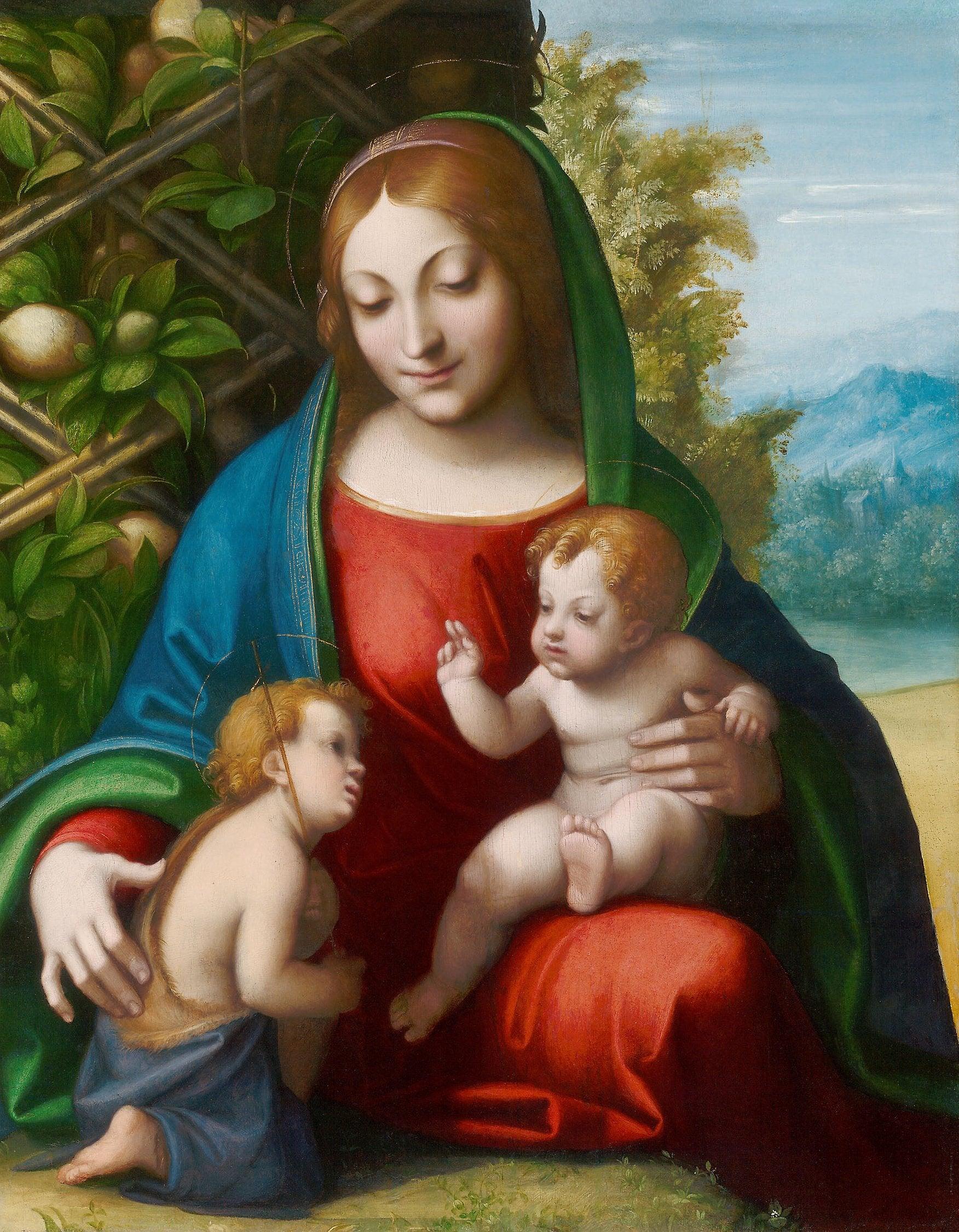Description
The painting "The Virgin and Child with the Young Saint John the Baptist" by Antonio Da Correggio is an Italian Renaissance masterpiece that has captivated art lovers for centuries. This work of art is one of the most famous of the artist and is located in the National Gallery of Parma, Italy.
Correggio's artistic style is characterized by his ability to create a sense of movement and depth in his works. In "The Virgin and Child with the Young Saint John the Baptist", the artist uses the sfumato technique to create a soft and ethereal atmosphere that envelops the characters. The composition of the painting is very interesting, as the characters are arranged in an equilateral triangle, which creates a feeling of harmony and balance.
Color is another prominent aspect of this artwork. Correggio uses a palette of soft and delicate colors that reflect the tenderness and sweetness of the scene. Pastel shades of pink, blue, and yellow combine to create a sense of calm and serenity.
The history of the painting is also very interesting. It was commissioned by the Bentivoglio family of Bologna in the 16th century and is believed to have been painted between 1518 and 1520. The work was transferred to Parma in the 18th century and has been one of the jewels of the Parma National Gallery ever since.
There are some little-known aspects of this work of art that are worth mentioning. For example, it is believed that the model for the figure of Saint John the Baptist was the artist's son, Francesco. Furthermore, the painting has been the subject of controversy due to the way in which Correggio depicted the Virgin Mary. Instead of showing her as a majestic and powerful figure, he depicts her as a loving and tender young mother.

